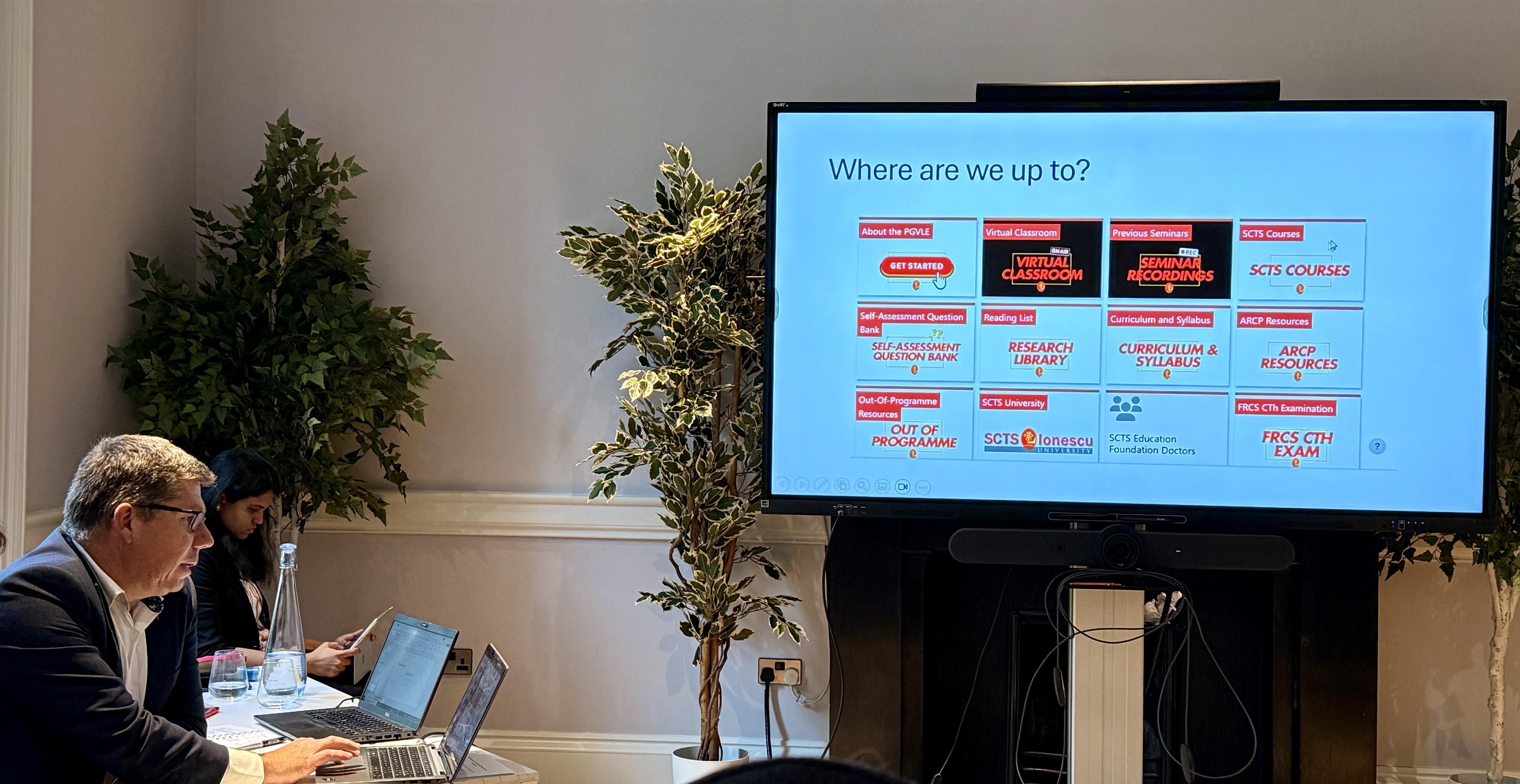From the President's Desk
16 June 2025
This week’s operating lists included a redo thoracotomy with completion lobectomy for recurrent cancer after a previous segmentectomy. The patient had been operated on elsewhere, and re-entering the chest highlighted the variations in surgical approach, not better or worse, just different. It reminded me of the range in safe and effective practice, and the importance of respecting and learning from those differences. Despite intense adhesions, the case went well.
Another major open case was a pneumonectomy, a procedure becoming uncommon and now accounting for only a few percent of resections. Both open cases provided valuable training opportunities, some parts done by my trainee, others demonstrated by me. Alongside those, a VATS segmentectomy on a frail patient, who was nonetheless discharged the next day. A tribute to the culture of same-day admission, enhanced recovery, and minimal-impact surgery and anaesthesia: modern thoracic surgery.
Infection management remains an important part of surgical practice. Sepsis continues to carry a high mortality. This week included a VATS washout for empyema in a frail patient, and a case of mediastinitis. In the latter, we approached both the chest and the neck, as one might for a high oesophageal anastomosis.
These experiences prompted broader reflection. Are thoracic trainees getting sufficient exposure to ENT, upper GI, and plastics? Are cardiac trainees getting enough vascular and interventional experience? These important conversations are being addressed within the SAC, curriculum review, ISCP, and SCTS Education Committee.
I also attended an All-Party Parliamentary Group (APPG) on endometriosis. You may ask, what does this have to do with SCTS? Quite a lot, in fact. Distressing patient stories revealed significant variation in the management of thoracic endometriosis. Most clinicians contributing were from gynaecology, yet this condition can affect the thorax and abdominal cavity. There is clearly a role for thoracic surgeons in improving care pathways, reducing variation, and enhancing outcomes. I’ve since raised this with the Federation of Surgical Specialty Associations (FSSA), to help develop wider action.
This week also included our SCTS Bulletin editorial meeting to review submissions for the Summer publication. My great thanks to Editor Dio Stavroulias, SCTS Administrator Emma Piotrowski, Hon. Secretary Rana Sayeed, Communications Secretary Sri Rathinam, and all contributors and reviewers. The breadth of content and volunteer effort behind the Bulletin is a collective achievement and one to be proud of.
We were delighted to welcome Cha Rajakaruna (Bristol) and Giuseppe Aresu (Cambridge) as our new cardiac and thoracic fundraising co-leads. These new posts aim to develop stronger links with industry and philanthropy, helping to raise our profile and amplify our mission. Used wisely, visibility supports our goals and extends our impact.
In a productive follow-up with Edwards, we explored how to further promote education and training in minimally invasive cardiac surgery and anaesthesia. With the right strategy and partnerships, we can shift culture, improve systems, and most importantly enhance patient outcomes.
I joined my first formal meeting with the FSSA and the Royal College of Surgeons of England. While I had met some colleagues informally, this was our first structured engagement. Each specialty association brings distinct strengths, and we share many common priorities.
A military colleague reminded us of the pressing need to prepare for potential conflict in Europe. I agree. National resilience in infrastructure, workforce, supply chains, and healthcare must be taken seriously. In any major crisis, our services will be tested, and surgical teams, already stretched, will be critical. We must also consider how elective services can continue in such circumstances.
From the RCS England, where SCTS has its office, there was a day of varied activities. We hosted our first SCTS Consultant Focus Group with Johnson & Johnson. These sessions offer open dialogue on surgical practice and product feedback, while helping to fund educational and other SCTS activities. They also provide valuable peer-to-peer networking. We have more planned.
On a very hot day, a meeting with the FSSA President turned into a shaded walk in Lincoln’s Inn Fields. We talked under the magnificent trees. I saw that the digitalis was just starting to blossom. We hope these relationships, too, will continue to flourish.
Later, I joined excellent discussions on the future of cardiothoracic transplant. SCTS has an opportunity to collaboratively develop patient-focused, clinically led pathways for both heart and lung transplant patients. Their needs differ, and with clinical expert we are best placed to define what “excellent” looks like to guide resource allocation and drive for truly world-class patient experience and outcomes.
The SAC, under the impressive leadership of Tim Jones, brought together colleagues for an important meeting on training and education. I was only able to attend part of the programme but was pleased to contribute updates from SCTS. We also heard from Mike Shackcloth on the excellent and growing online teaching portfolio. The coordinated move to digital learning aligns with government priorities and offers flexible, accessible content. Trainees can learn at their own pace, and tutors can reach wider audiences. It reflects a broader shift away from textbooks to multimedia formats, often delivered via handheld devices.

The week closed with the wonderful news that Carin van Doorn-has been awarded an OBE in the King's Birthday Honours list. A richly deserved recognition of her contributions to children’s heart surgery both in the UK and internationally, including extensive charity work. On behalf of SCTS, we give our warmest congratulations.
Thank you for all your continued efforts and support.
Aman S Coonar
President, SCTS
All feedback is gratefully received. Please email: emma@scts.org or aman.coonar@nhs.net
View other News